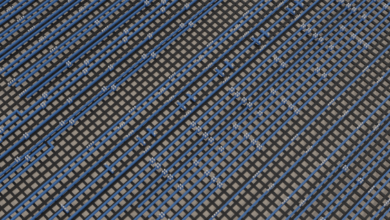
SoftBank, Keio University Research Collaboration to Explore Quantum Computing Use Cases
[ad_1]
PRESS RELEASE — SoftBank Corp. launched a joint research collaboration with Keio University to explore the business utilization of quantum computers. Initially, the research will be in the field of quantum chemistry, which involves the quantum mechanical analysis of molecules and nuclei.
SoftBank will send researchers to Keio University’s Quantum Computing Center to simulate nuclear quantum effects (NQEs) that classical computers cannot calculate efficiently. These simulations will be performed using a Noisy Intermediate-Scale Quantum (NISQ) computer, and will be used to investigate the mechanisms of chemical phenomena and validate NISQ use cases for social implementations.
SoftBank will continue to conduct research in areas including quantum machine learning and optimization planning, and work with mobile technologies such as 5G and 6G communication systems and IoT to contribute to the social implementation of quantum computers.
Principles and challenges of quantum computers
With the rapidly growing need for data analysis, exemplified by the use of AI, large amounts of processing power for calculations are becoming increasingly necessary. However, classical computers are struggling to process this number of computations in any practical time frame. This has led to a new approach that uses quantum computers to solve complex calculations. The pursuit of quantum computing has gained significant momentum as it offers a wide range of applications across a wide range of industries, including public transportation, logistics, finance, manufacturing, and the development of new drugs and materials.
Classical computers, which are widely used today, use a “bit” as the base unit to represent a state of 0 or 1. In contrast, a quantum computer uses a “qubit” as its base unit, which takes advantage of a property of quantum mechanics known as superposition, allowing both to be 0 and 1 at the same time. Therefore, quantum computers have the potential to perform exponentially faster computations based on high-dimensional quantum mechanics compared to classical computers, which require long computing times in realistic scenarios.
On the other hand, today’s quantum computers, also known as NISQ, are prone to noise, making calculations less precise, requiring further technological advances to improve accuracy. This includes developing a quantum computer that can extend the time that a quantum state can be maintained, accurately controlling the state of a qubit, reading its state accurately, and developing error correction techniques.
Overview of Joint Research Collaborations
The joint research collaboration between SoftBank and Keio University in the field of quantum chemistry will focus mainly on the following two themes:
Molecular simulation treats NQE — Quantum chemistry is a field that seeks to understand the internal structure and reaction mechanisms in molecules and atomic nuclei based on the laws of quantum mechanics. However, many molecular-level simulations using classical computers in fields such as chemistry, biology, and materials science treat the atomic nucleus as a classical particle independent of electrons, because it is difficult to calculate nuclear quantum effects (NQEs) and the interactions between electrons and nuclei in a realistic amount of time with limited computational power. However, when dealing with small and light cores, ignoring NQE can result in significant errors.
Quantum computers are well suited for efficiently simulating the quantum mechanical behavior of atomic nuclei and for directly simulating interactions between electrons and nuclei. Therefore, in this joint research collaboration, SoftBank and Keio University believe that if they can demonstrate the ability of NISQ computers to effectively simulate NQE, high-precision simulations can be achieved. This can lead to innovative developments in various fields, including the discovery of new drugs and materials.
NISQ use case verification through simulation using the Path Integral Molecular Dynamics (PIMD) method. — One of the simulation methods that handle NQE is the Path Integral Molecular Dynamics (PIMD) method. PIMD evaluates all possible particle paths simultaneously and assigns a specific amplitude to each path. The sum of these amplitudes (integration) is used to express NQE. However, the main problem with this method is the very high computational costs. In this joint research collaboration, SoftBank and Keio University will verify whether the NISQ computer, known as a quantum computer, can simulate all paths using the PIMD method and efficiently express the quantum mechanical behavior of atomic nuclei in molecules and atomic nuclei.
[ad_2]
Source link





